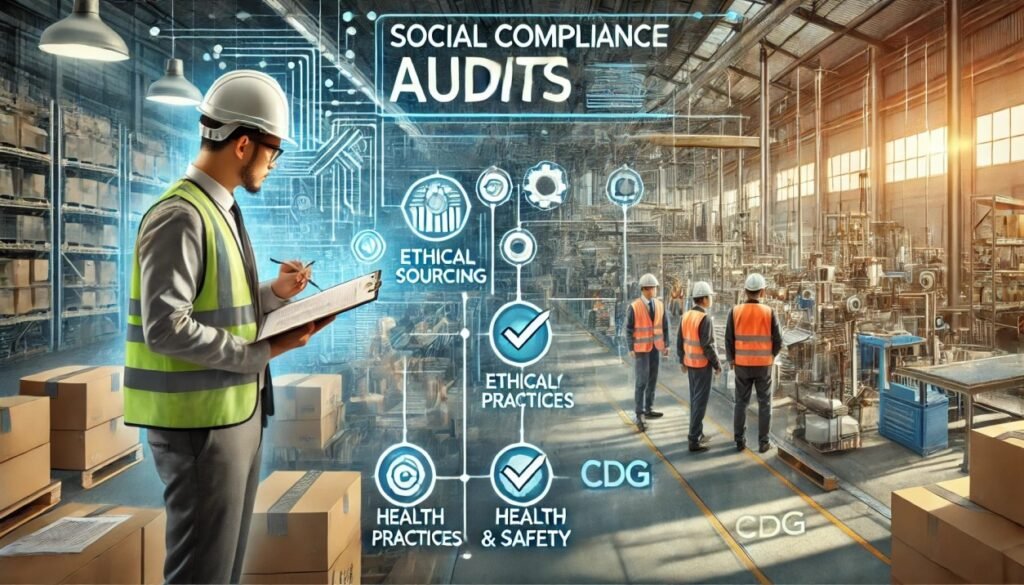What is a Social Compliance Audit? Understanding the Essentials for Ethical Business Practices
In today’s globalized world, consumers and businesses alike are increasingly concerned about the ethical practices behind the products and services they use. Whether it’s ensuring fair labor practices, environmental responsibility, or human rights, companies are under more pressure than ever to demonstrate their commitment to social responsibility. This is where social compliance audits come into play.
Introduction: The Growing Importance of Social Compliance
Social compliance refers to how a company conforms to social and ethical standards within its operations, particularly in the context of labor laws, environmental regulations, and human rights. For businesses with complex supply chains, maintaining social compliance isn’t just about ticking a box—it’s about upholding integrity, building consumer trust, and avoiding potential legal and reputational risks.
A social compliance audit is a systematic review process that helps companies assess how well their operations and those of their suppliers align with these ethical standards. But what exactly does this audit entail, and why is it crucial for businesses today? Let’s dive in.
Understanding Social Compliance Audits: The Core Elements
A social compliance audit involves a thorough examination of a company’s adherence to various social, ethical, and environmental standards. These audits can vary depending on the industry, region, and specific standards a company is aiming to meet, but they generally cover several key areas:
- Labor Practices: This includes checking for fair wages, reasonable working hours, and ensuring safe working conditions. Auditors also look for evidence of any forced or child labor.
- Health and Safety: Companies must ensure that their employees work in environments that are safe and meet all health regulations. This includes proper equipment, emergency procedures, and access to medical care if necessary.
- Environmental Impact: The audit will assess the company’s environmental practices, including waste management, resource usage, and efforts to minimize pollution and carbon footprint.
- Ethical Business Practices: Auditors evaluate the company’s commitment to ethical business operations, such as transparency in their dealings, anti-corruption policies, and fair trade practices.
- Human Rights: Ensuring that the company and its suppliers do not engage in human rights violations, such as discrimination, exploitation, or harassment, is a critical component of social compliance.
Why Social Compliance Audits Matter
For businesses, especially those with complex, multi-tiered supply chains, social compliance audits are not just a regulatory requirement—they are a strategic tool for maintaining brand integrity and customer loyalty. Here are a few reasons why these audits are crucial:
- Risk Management: Social compliance audits help identify and mitigate risks related to unethical practices that could lead to legal issues, financial losses, or damage to the company’s reputation.
- Consumer Trust: Modern consumers are more informed and concerned about where their products come from. Companies that can demonstrate compliance with social standards are more likely to earn customer loyalty and trust.
- Investor Confidence: Investors are increasingly focusing on companies that prioritize environmental, social, and governance (ESG) factors. A strong social compliance record can attract more investment and improve a company’s market valuation.
- Supply Chain Transparency: For companies that source products from multiple suppliers, especially in developing countries, social compliance audits provide essential transparency, ensuring that all parties involved adhere to the same ethical standards.
Practical Tips for a Successful Social Compliance Audit
- Choose the Right Audit Partner: Work with a reputable auditing firm that understands your industry and the specific social standards you need to meet. An experienced partner like CDG can guide you through the process and ensure thorough, unbiased audits.
- Prepare Your Team: Make sure your internal teams are well-informed about the audit process. Provide training and resources to help them understand what auditors will be looking for and how they can ensure compliance.
- Regular Monitoring: Social compliance isn’t a one-time task. Regularly monitor your practices and those of your suppliers to ensure ongoing adherence to social standards.
- Engage Your Suppliers: Work closely with your suppliers to help them understand the importance of social compliance. Provide them with the necessary tools and support to meet the required standards.
- Act on Findings: If the audit identifies areas of non-compliance, take immediate action. Develop and implement corrective measures, and follow up to ensure these changes are effective.
Upholding Ethical Standards for a Better Future
In an era where corporate responsibility is under the spotlight, social compliance audits are not just about avoiding penalties—they’re about committing to ethical practices that contribute to a better world. By ensuring that your business and its supply chain partners adhere to high social and ethical standards, you not only protect your brand but also play a part in fostering global ethical practices.



